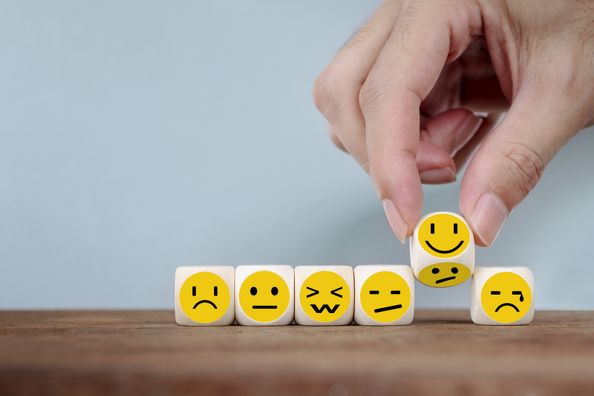You know that feeling when you’re all caught up at work, the house is clean, the laundry is done, your eyebrows are perfectly shaped, the bills are paid, the lawn is mowed, no one is whining, the sun is shining, and all is right with the world?
If you are human, and I suspect that some of you are, you have no idea what I’m talking about. You might be starting to sweat a little or breathe faster because what I just described sounds exactly like nirvana but you’ve never actually experienced it so now you’re thinking there must be something wrong with you.
First of all, relax. Take a slow breath in, hold it for a few seconds, now exhale even slower. Repeat as needed.
Second, that run-on sentence? The one without all the stress? That was a work of fiction. A fairy tale. While we may fantasize about that degree of stresslessness on a regular basis, we will very rarely experience it. In fact, “stresslessness” isn’t even a word because it’s not a thing. The closest concept we have in the English language is “all-inclusive resort.”
What is stress and what does it do for us?
There are several definitions of the word “stress” but what we’re talking about here is mental or emotional tension created by a challenging or demanding circumstance or situation. Stress can be positive (having a baby, starting a new job, going on vacation) or negative (a significant loss, financial difficulties, conflict with a partner). Life is full of both kinds.
Stress is also relative. Things that stress out teenagers (losing a Snap streak, getting a low grade on a chemistry test) are very different from the things that stress their parents (not knowing what a Snap streak is, argumentative teens).
I like to think of it as one of our most basic needs: Food, water, oxygen, and constant stress. That might sound like a bad thing because stress has the reputation of being a terrible, horrible enemy that we must all banish from our lives. But stress is our friend, not our foe. We may not always enjoy feeling stressed, however it is absolutely, positively critical to our growth and development.
But why? Why can’t life be rainbows and unicorns and long walks on the beach every day?
1. Stress keeps us safe.
Let’s say you are being chased by a bear. I’m guessing that doesn’t happen to you on a regular basis, but for the sake of example go with me on this. You would probably feel much distress in that situation. That feeling would initiate your body’s “flight or fight” response which would help you to quickly seek safety. If you instead felt the urge to cuddle with him or her, the result would most certainly be disastrous. Stress makes it possible for us to recognize potential threats, react in emergencies, and protect ourselves and others from danger.
2. Stress motivates us to do necessary and often unpleasant tasks.
Without stress, we’d pretty much just lie around in our underwear waiting for nothing to happen. Well, I would. I don’t know what you’d do, but it wouldn’t be much. Each stressor we face, creates an internal tension that makes us take action or keep trying even when a task is difficult. Would you study for a test if you weren’t concerned about your grade? Would you go to work if having money to pay for things didn’t matter to you? The feeling you have when you get behind on the laundry – STRESS (and maybe a little bit of heartburn) – is what motivates you to tackle Mt. Laundruvious. Because we all know you’d rather veg out on the couch and watch a couple (twelve) episodes of Orange Is the New Black.
3. Stress leads to the development of necessary skills and strengths.
Basically you’re born and then for the rest of your life, you face challenge after daunting challenge, each one designed to make you strong enough for the next. We start out with developmental challenges like breathing on our own, learning to suck, holding up our own heads, sitting, and walking. Then we graduate to things like talking, social skills, reading, and math. We overcome some stressors or challenges more easily than others, as those of us who can’t calculate a tip to save our lives understand very well, but each stress we face teaches us a skill we need in order to face future challenges.
Too much of a good thing?
Stress is good for you. Until it’s not. There is a very fine line between just the right amount and too much. Just like cake, stress is harmful in large quantities. An overabundance of stress in your life can lead to a variety of physical and emotional symptoms, such as:
Headaches
Anxiety
Depression
Sleep problems
Irritability
Feeling distracted and overwhelmed
Changes in eating habits
Stomach problems
When it comes to stress, we need just enough to motivate us to do necessary things, stay safe from dangerous things, and keep learning to do new things. But if we cross the line, our health takes a hit. Next week’s post will include simple but realistic tips for maintaining that balance.
Until then,
Nikki
*The content in this blog should never be considered an alternative to quality medical or mental health care and is intended to be a source of information only.
Health Topics:







